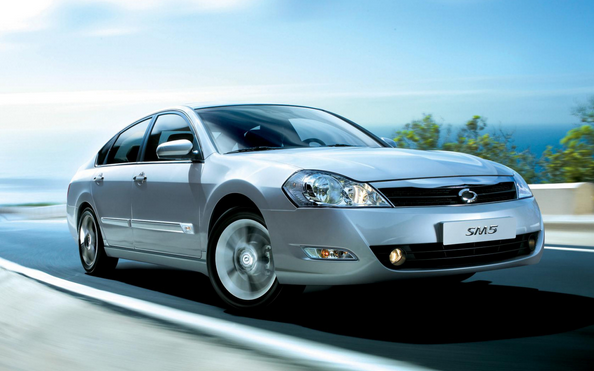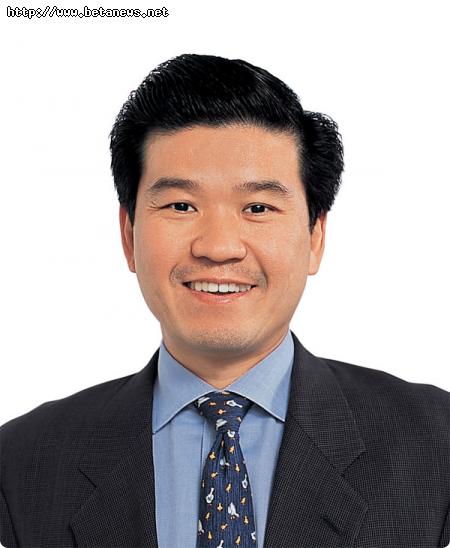In Korea, the "haptic UI" phones (namely the touch screen phones) were all the rage in 2008. Now, Korean cellphone maker Pantech hopes it can further extend this new trend of "human-touch" phone UI.
Pantech has introduced a new mobile phone with an integrated wind sensor. You can navigate through the phone's menus by, say, blowing a gentle whistle on the phone's screen. The phone also has a mobile game that you control with your breath.
Now, I think this is a bit of an overkill, especially as the sensor is physical (hence the name "wind sensor") not chemical. If my cellphone, for whatever reason, must have a breath sensor, I'd like it to be able to detect bad breath or double up as an alcohol detector.
TAG cellphone, Pantech
Once you're lucky, twice you're good, third time you're... great
Mobile | 2009/02/02 21:03 | Web 2.0 Asia
Chan-jin Lee is the so-called "first-generation venture heroes" in Korea. He was the founder of Haan Soft. Many readers of this blog may not be familiar with the company, but it's the maker of "HWP", a word processor software that had effectively kept Korea as one of only few markets in the world where Microsoft Word didn't get a significant market traction, for many years. (Now even in Korea MS Word has the lion's share of the market, but HWP still sees quite significant usage to this date). Haan Soft also owns Thinkfree, an online office application suite.
In 1999, after 10 years of tenure at Haansoft, Lee had moved on to his second venture, Dreamwiz, an internet portal. Talk about a big transition: Unlike some folks in Redmond, Lee had a big success with packaged software but had soon developed a foresight that the future would lie in the web not in the packaged software. Dreamwiz is not top 5 portal now, but it's still a decent tier-2 portal site in Korea.
So his first venture was a smash hit, and the second one wasn't too shabby either. And now this serial entrepreneur seems to have caught another startup bug - this time, the name of the game is smartphone apps.
These days, Lee seems to be focused single-handedly on developing iPhone apps, such as the iPhone Go-Stop game. (Go-Stop is like a Korean poker). With no iPhone officially available yet in Korea, Lee's iPhone apps are not exactly seeing millions of downloads - but the figures do show a pretty steep growth, Lee says. Lee recently wrote a blog post (in Korean) that the cumulative revenue of his iPhone apps has reached the $10K mark, in 2 months. Still pretty small figures, but Lee seems to be pretty giddy-up; After all, iPhone hasn't even launched in Korea yet.
If you still have a lingering doubt that the mobile web, despite all the hypes, never took off and therefore will likely remain that way in the future, maybe it's time to think again. Lee may be little known outside of Korea, but that doesn't mean he's not a visionary. This man is a classic visionary type who just knows when something big is coming. (Maybe he gets a tingling feeling in the back or something.) According to Lee, first there was packaged software, then there was the internet, and now it's the smartphone apps. He's pretty tenacious - he spent a decade each for the first two waves, and he's now braced for spending his third decade on this newly emerging market. His smartphone apps venture is still very much nascent, but let's see how he pulls this one and turns it into a jackpot. Meanwhile, you are also welcome to join the smartphone apps bandwagon, especially if you are bold enough to trust one serial entrepreneur's hunch.
TAG chan-jin lee, dreamwiz, go-stop, iPhone, smartphone
Ji-Hyun Jun, one of Korea's top celebrities who is most well known for the hit TV commericals she starred in, had found her cell phone hacked. The police had found that the hacker was actually her own agent. Ouch, when you find someone behind such a creepy incident was actually the one closest to you, it's a slap in the face.
What has been uncovered alongside during the investigation was that cell phone hacking is a practice that's more commonly done than expected. Cell phone hacking is almost like a piece of cake: By hiring a professional hacker, you can peek at someone's cell phone records at as low as some US$2,000, the police say.
This leaves an obvious question: What if this cellphone records snooping is in fact something that happens all the time to many of us? Or, what if the hacking can be happening at someone's credit card and bank records too? Creepy, indeed. Obviously it's the downside of having an always-connected, ubiquitous society.
Will Samsung get its hands on car manufacturing business again?
Other | 2009/01/20 02:25 | Web 2.0 Asia
Heads up: This post doesn't pertain so much to web business, but it's posted as the story is about Samsung Electronics, no wonder the biggest tech company in Korea.
Globally, Samsung is best known as an electronics company. But in its domestic Korean market, Samsung is really the country's largest company group that makes just about everything "from chips to ships."
In fact, Samsung is so omnipresent in Korea that it's almost impossible for Korean citizens to escape from the brand. If you were a Korean, your life can literally start and end within the realm of Samsung Empire: You could be born in Samsung Hospital, go to Samsung-owned schools, get a job at one of many Samsung companies, get married and start a home at Samsung Apartment, drive a Renault-Samsung car, bring kids to Samsung-owned amusement park (Everland), manage personal wealth through Samsung's financial arms (that is, if you still have money left after buying all those Samsung products) -- and finally, just in case you want to know, Samsung Hospital offers just about the best funeral service for you and your family.
When people outside of Korea hear the words "Samsung" and "car" in the same sentence, most of them wouldn't think too much outside of something like a car kit for Samsung phone. But actually Samsung used to be one of the five major automobile manufacturers in Korea, along with Hyundai, Kia, Daewoo, and SsangYong (an SUV specialty player). As the market consolidated, Samsung sold its major stakes in Samsung Motors to French Renault, ending up being a minor stakeholder in Renault-Samsung Motors. After losing some US$2 billion, Samsung's then-president Gun-hee Lee vowed Samsung will never set foot in the car business again, other than maintaining its shares in Renault-Samsung.
But as Ssayng Yong Motors (part of China's SAIC Motor Company after acquisition) stumbles and nears bankruptcy amid global car industry meltdown, there are speculations about Samsung taking over Ssang Yong Motors (and possibly GM Daewoo, the Korean presence of the faltering GM, as well) to position itself as a major car company in Korea yet again. Justification this time? The ongoing electric vehicle frenzy. The whole industry is rapidly gearing towards electric vehicles - which require extensive cutting-edge technologies for batteries, fuel cells, semiconductors, etc. Guess who has some killer technologies for those - Samsung does.
Samsung is strongly denying this speculation, but the current market situation makes it awfully easy and justifiable for Samsung to re-enter the car market. Actually, with all its electronics technology wizardry and deep pocket, Samsung might be in a good position to produce some nice EV's down the road. What do you think? If you were someone who controls Samsung's alleged $13bn of cash in bank, would you invest the money to venture into car business? If Samsung does become a car maker, who would be next on line, Sony? (Of course, that's assuming the company has taken care of the exploding batteries.)
(Via ) Kim James Woo, CEO of Yahoo Korea and Overture Korea, will take the leadership role at Microsoft Korea starting from February. I first met James when he did panel for Open Web Asia '08. James is an industry veteran, who has extensive experience at various US and Korean tech firms, and also degrees from UCLA and Harvard Business School under his belt.
Yahoo's brain drain is no secret by now, but the news of Yahoo Korea leader moving on to become Microsoft Korea leader has really caught me off guard. But don't call the story interesting until, if it ever happens, Microsoft turns around and finally buys Yahoo. Don't seal off those champaign chillers from the farewell party too soon - you might use them again for possible reunion parties. You never know.
James is certainly a top notch executive, well proven by his track records, but he's facing some formidable challenges to take up a notch Microsoft Korea's internet business, which "struggles to be relevant in the Korean market" as Korea Times puts it. Of course taking Microsoft's internet business up a notch wouldn't be a formidable challenge only for James - it would be the agenda for the whole Ballmer & Co. But hey, how can life be fun without difficult challenges? :) I wish all the good luck for James and Microsoft Korea.
TAG Kim James Woo, Microsoft,
(Via Hatena.co.kr blog) Google might soon pass Yahoo Japan in the Japanese web search market. According to , Google Japan now has 41% market share, while the ruling king Yahoo Japan's market share has slided to 44%.
According to the article, the "magic formula" behind Google Japan's success include:
-
Aggressive marketing initiatives: Japan homepage renewal (with direct links to Gmail, Youtube, and other services), which helped Google get recognized as something more than a search service; iGoogle artists theme campaign; Offline ads
-
Controversial news articles about the company: Privacy issues related to Google Maps service actually helped boosting Google's brand awareness (Well, they say it's better to get criticized than to get forgotten)
-
Customization for local users: For example, Picasa Web Album's Japanese service displays QR codes, a Japan-only feature. It is particularly relevant, given the country's heavy mobile use.
-
Mobile search: Google has a strong market share in Japanese mobile search - again, particularly important in Japan where mobile search is as important as web search, if not more important.
Those look like some pretty basic strategies to me. So Google Japan didn't exactly reinvent the wheels - they rather stuck with the basics yet executed them brilliantly. Good for them.
What may also become a factor here is that, reportedly, Softbank Group (the owner of Yahoo Japan) isn't in such a good financial shape right now. The Japanese conglomerate got burnt by recent financial crisis, which came on top of Softbank Mobile's huge debts. If Yahoo Japan loses out in the market share duel and gets dethroned by the newcomer that has a colorful logo and hails from the neighboring Mountain View, it would be a quite sad day for Yahoo, whose true gem was its Japanese sibling (or the stakes therein) as everyone knows.
I somehow stumbled upon the picture on the left, and I think the photo kind of epitomizes how much the use of technology is prelevant in the everyday Korean life.
Obviously, the person is climbing on the steep, rocky side of a mountain (Korea is a pretty mountainous country). Even up there we have cell phone signals; And even in the midst of climbing the guy still picks up the phone.
Yes, Korea is such a highly connected society - but the potential downside is that there is really no way you can hide from the technology. Maybe the guy in the picture should cut himself loose more often - pun intended :) Anyhow, happy holidays to all Web 2.0 Asia readers, and see ya'll next year!








